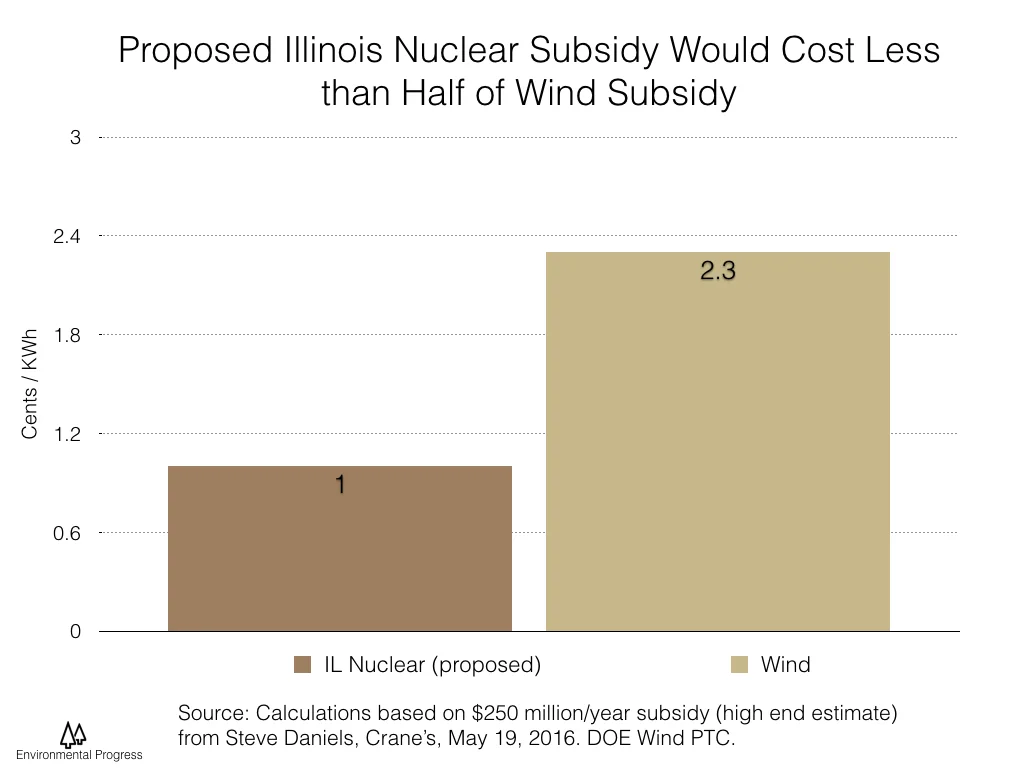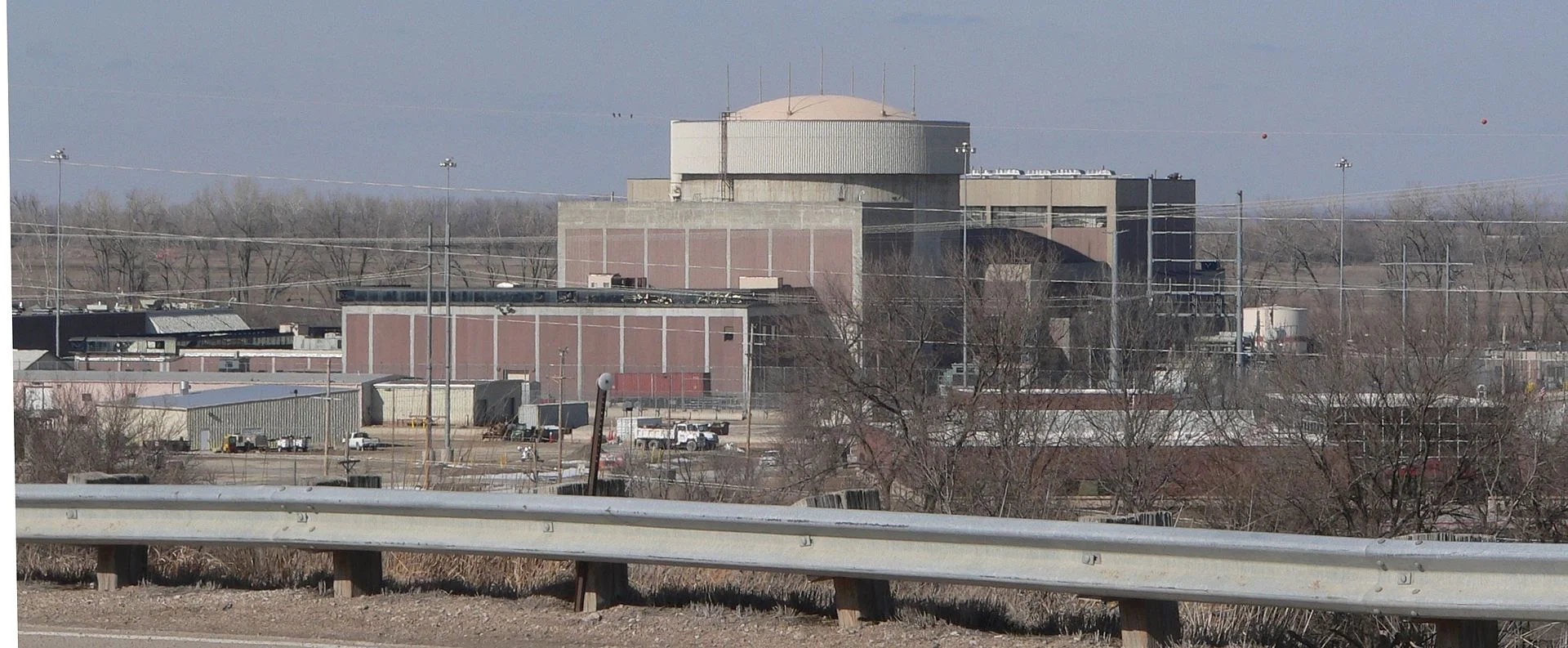As the first state to value nuclear for its environmental benefits, New York gives Environmental Progress and the pro-nuclear environmental movement the momentum we need to save one-quarter of Illinois’ clean power — but only if we act quickly. After the November elections, there will be a very brief “veto session” in the Illinois legislature. If the legislature fails to act, Clinton and Quad Cities nuclear plants will be closed and replaced with fossil fuels. We have 100 days to act. We can win this. Here’s how.
Read MoreWe applaud the Public Service Commissioners and Governor Cuomo for crafting a Clean Energy Standard that will at least temporarily save New York's nuclear plants. This initiative is an inspiration to environmentalists and workers in Illinois, California and other states fighting to save other nuclear plants at high risk of closure.
At the same time, the measure still discriminates against nuclear by not including it in the state's long-term clean-energy mandates. That makes New York's policies less ambitious than they could and should be. If New York included nuclear in an expanded goal, it could come much closer to 100 percent clean power in 2030 and beyond.
Read MoreNext Monday, the state of New York may make climate change history. The NY Public Service Commission will vote on a measure that would not only prevent three nuclear power plants from being replaced by fossil fuels, it would also establish an important precedent that could be replicated across the U.S. and even in Europe. The CES is by no means a done deal. It is being opposed by the usual suspects, including the Sierra Club and Riverkeeper. For that reason Environmental Progress is mobilizing pro-nuclear supporters to come to Albany to urge Commissioners to do the right thing.
If they do the right thing for the climate and New York, there will be plenty of credit to go around — especially to the courageous workers of Fitz, the supportive elected officials and IBEW 97. Had they given up, then so too might have Gov. Cuomo, Entergy and Exelon.
Read MoreBloomberg New Energy Finance has just published a major new report showing that 55 percent of America’s nuclear plants are losing money and are at serious risk of being replaced by fossil fuels. The Bloomberg report highlights deep dysfunctions in America’s changing electricity system. The immediate problem is a depressed electricity market that chokes off nuclear plants’ revenue. But beneath that are counterproductive energy policies that will result in a wasteful glut of capacity, perpetually falling prices and rising costs.
Read MoreClimate scientist James Hansen and dozens of other scientists and environmentalists today urged New York's Public Service Commission (PSC) to pass a proposed Clean Energy Standard (CES) to save the state's nuclear power plants. The letter comes on the heels of an announcement that, if the PSC passes the CES, the Fitzpatrick nuclear plant — scheduled to be closed — will be sold by Entergy to Exelon and stay open.
Read MoreWe applaud the proposal by the New York State’s Department of Public Service (NYSDPS) for a Clean Energy Standard (CES) that includes a Zero-Emissions Credit (ZEC) for nuclear power plants. If New York loses its nuclear power plants they will be replaced by fossil fuels, and greenhouse emissions from the state’s power sector would skyrocket roughly 50 percent. The proposed Clean Energy Standard’s Zero-Emissions Credits would likely generate economic benefits four times larger than the maximum cost. In recognizing the value of zero-emissions power, the proposed CES and ZEC will ensure New York retains its leadership on climate change and clean energy.
Read More"What is absolutely outrageous is to suggest you can take Diablo Canyon offline and not increase our dependence on methane, fracked gas and not increase carbon emissions,” said Michael Shellenberger, president of Environmental Progress, a pro-nuclear environmental group based in Berkeley.
Read MoreIndependent and industry experts agree that carbon emissions would rise from increased natural gas use were Diablo Canyon nuclear power plant to close. "California's current emissions cap is very unlikely to be binding," said UC Berkeley economist Severin Borenstein, "so losing Diablo would raise emissions.” PIRA Energy Group found natural gas use would rise 34 percent in northern California. And electricity expert Revis James called the deal "risky, complex and expensive."
Read MoreDiablo Canyon will be mostly replaced by natural gas and emissions will increase if the Joint Proposal by PG&E, IBEW 1245, and anti-nuclear groups is approved by the California Public Utilities Commission (CPUC) and upheld by the courts. Further, the percentage of electricity PG&E derives from low-carbon energy sources will decline from 58 to 55 percent. How do we know? Because we read the fine print.
Read MoreThe back-room Diablo Canyon deal — negotiated by corrupt institutions behaving unethically and perhaps illegally — will fail. It will fail because it will would put our children and grandchildren at risk. It will be rejected by the people of California, policymakers and the courts because of the human suffering and environmental harm it would cause. It will fail because everyone now knows — and Sierra Club and NRDC have admitted — that closing nuclear plants will increase fossil fuels and carbon emissions. It will fail because when people understand that the proposal is based on a big lie — that Diablo can be closed without increasing fossil fuel use, methane emissions and carbon emissions — they will reject it, and the leadership of the institutions who negotiated it.
Read MoreThe Illinois Environmental Protection Agency (EPA) says if Illinois nuclear plants are closed they would be replaced mostly by coal. Meanwhile, the head of Illinois anti-nuclear organization Environmental Law and Policy Center — which is funded by fossil fuel interests and other energy companies that would benefit from closing nuclear plants — has doubled down on his efforts to increase carbon emissions by closing nuclear power plants and replacing them with fossil fuels.
Read More
Illinois Attorney General, Lisa Madigan, claims Illinois ratepayers bailed out the state’s nuclear plants, and that Exelon is simply seeking corporate welfar. This is simply false. Illinois nuclear plants were never subsidized by ratepayers using any standard definition of the word "subsidy." By contrast, solar and wind have been heavily subsidized for over a decade — and Attorney General Madigan strongly supports those subsidies. What we need is fair and equal treatment of all forms of clean energy. Madigan should embrace this principal of fairness and equality.
Read MoreOver the last few months we've seen growing recognition by Democratic political leaders that efforts to close nuclear plants prematurely are disastrous for the climate. Hillary Clinton said efforts to prematurely retire nuclear plants "put ideology ahead of science and would make it harder and more costly to build a clean energy future." Energy Secretary Ernie Moniz said, "We're supposed to be adding zero-carbon energy sources not subtracting them." And Senator Cory Booker endorsed extending the nuclear the same subsidy wind energy receives: "I know the challenges global warming [presents]... We've got to support the existing fleet."
Read MoreBy Will Boisvert
Once again a money-losing nuclear plant gets the axe while cheap renewables flourish. And once again, that seemingly hard-headed verdict hinges less on economic reality than on one-sided subsidies and biased policies that derail the environmental progress they are supposed to promote.
The utility says that closing Fort Calhoun will save up to $1 billion over the next two decades. The lost output would be replaced by a mix of wind power (42 percent), a smidge of gas-fired generation (2 percent) and a lot of efficiency and demand-response to lower electricity consumption. Retiring the plant, in OPPD’s view, is financially smart and impeccably green. But while that proposal sounds both cheap and clean, it’s actually a long step backwards for the utility’s decarbonization program.
Read More"Nuclear is without a question the most important environmental technology in the 21st century," said Michael Shellenberger, an advocate for nuclear power and president of Environmental Progress.
He said nuclear is the highest rung on the energy ladder that civilizations climb as they move to denser fuels from biomass, to coal, to oil, to gas and finally to uranium. "From an energy and environmental and development perspective, I want everybody to go up the hierarchy of energy," Shellenberger said.
Read MoreIllinois legislation that would have prevented the premature closure of two nuclear plants has been killed by environmental groups and an alliance of fossil fuel companies.
Read MoreLast December, Michael Shellenberger crossed the threshold from analysis to activism.
The co-founder of the Breakthrough Institute, an Oakland, Calif.-based environmental think tank, concluded that the threat of climate change is severe and that one of the most potent weapons to combat it, nuclear energy, is in peril.
"I really wanted to dedicate myself to our largest source of clean energy," said Shellenberger, 44. "There's just really urgency everywhere."
Read More


















